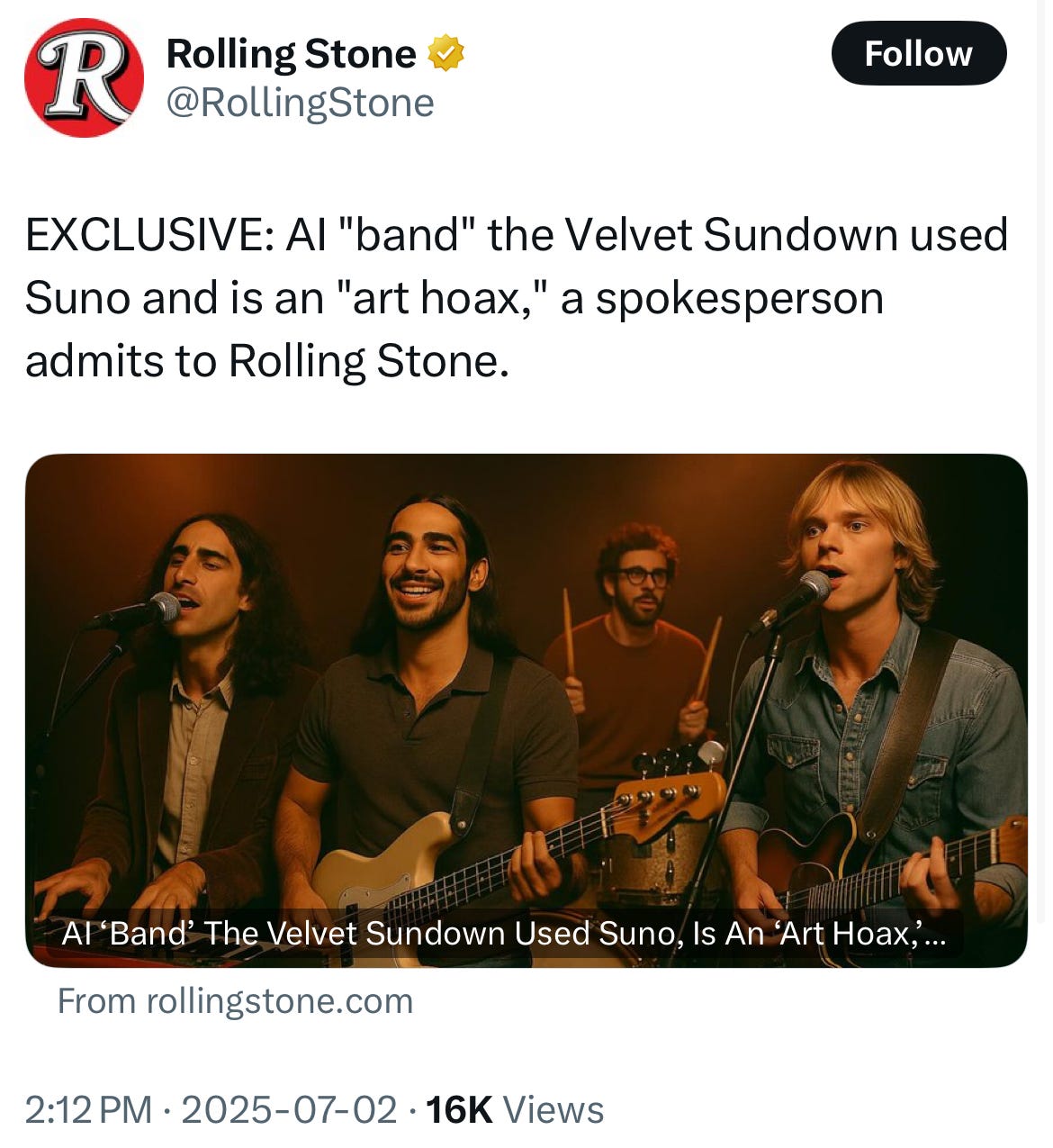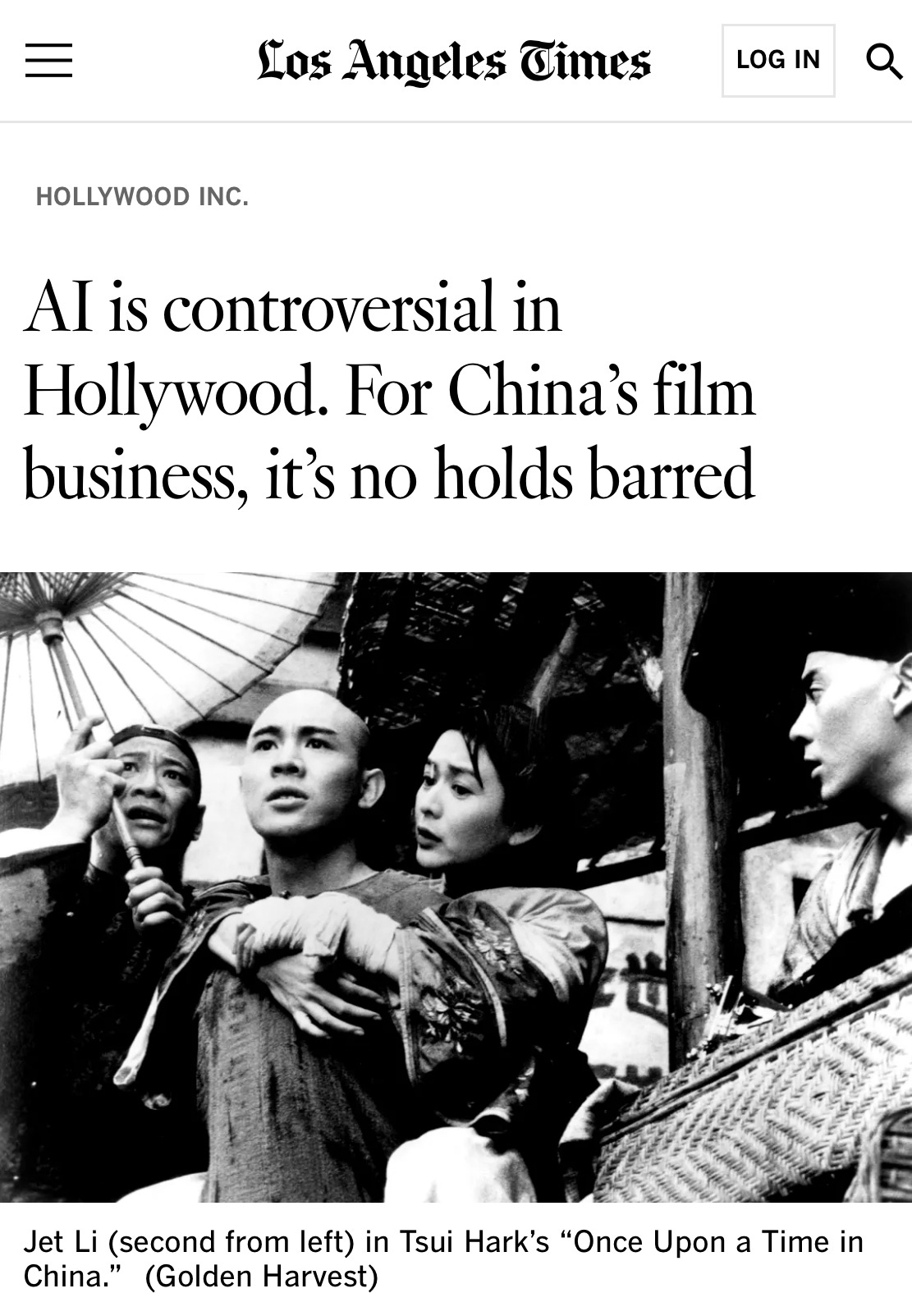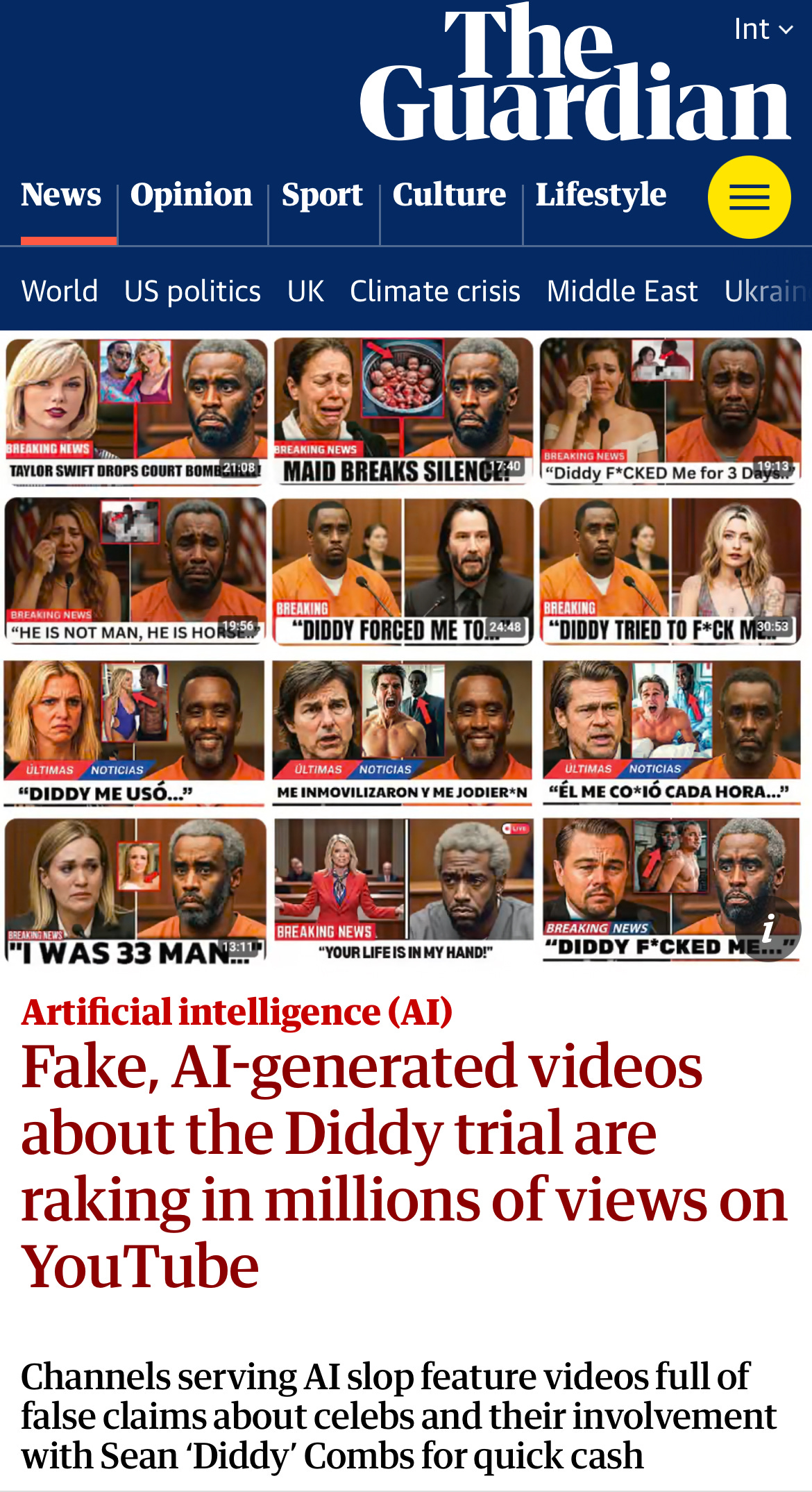Hi! I’m Ronit Novak and welcome to the new weekly newsletter from THE GRAIN—featuring five newsworthy items about the future of creativity, the latest from my ongoing interview series, and more grains of thought about the pleasure and peril of AI. Subscribe to THE GRAIN here on Substack along with wherever else you get your podcasts, and follow me on LinkedIn, Instagram and TikTok.
1. Light shed on virtual music
UPDATE: ‘Spokesperson’ for AI ‘Band’ Velvet Sundown now says he’s a hoaxer [Rolling Stone]
“I respect that people have really strong emotions about this,” says pseudonymous band spokesperson and “adjunct” member Andrew Frelon. “But I think it’s important that we allow artists to experiment with new technologies and new tools, try things out, and not freak out at people just because they’re using a program or not using a program. People have this idea that you have to please everybody and you have to follow the rules. And that’s not how music and culture progress. Music and culture progressed by people doing weird experiments and sometimes they work and sometimes they don’t. And that’s kind of the spirit that we’re [embracing].”
2. Journalism’s existential threat
In the event of publisher mass extinction, some journalists will be able to endure. The so-called creator economy shows that it’s possible to provide high-quality news and information through Substack, YouTube, and even TikTok. But not all reporters can simply move to these platforms. Investigative journalism that exposes corruption and malfeasance by powerful people and companies comes with a serious risk of legal repercussions, and requires resources—such as time and money—that tend to be in short supply for freelancers. If news publishers start going out of business, won’t AI companies suffer too? Their chatbots need access to journalism to answer questions about the world. Doesn’t the tech industry have an interest in the survival of newspapers and magazines?
The end of publishing as we know it [The Atlantic]
3. Business prof perspective
Beyond creating new artistic genres, AI's influence might have an even more surprising effect on human creativity: making artists better at their craft. Doctoral candidate C. Blaine Horton Jr. points to a precedent for machine-prompted human evolution. With the advent of computer chess programs, the perception of a human grandmaster’s skill declined because the computer made the mastery of chess seem easier than it is. But despite the initial threat posed by computers, human grandmasters eventually became even better at the game because they could train against machines. “It remains to be seen whether the same thing will happen in the art world,” says Horton. “If so, human value and the idea of human expertise should decrease or be variable for a period of time, until the machine surpasses us and a new bar is set for what it means to be a good artist.”
Beyond the Machine: Why human-made art matters more in the age of AI [Columbia Business School]
4. New era of kung fu fighting
China is a "more brutal society in that sense," said Eric Harwit, professor of Asian studies at the University of Hawaii at Manoa. "If somebody loses their job because artificial intelligence is taking over, well, that's just the cost of China's moving forward. They don't have that kind of regret about people losing jobs and there are less opportunities for organized protest against the Chinese government."
AI is controversial in Hollywood. For China's film business, it's no holds barred [Los Angeles Times]
5. Deepfake celebrity trial
NV Historia pumped out Chuck Norris slop until views began to taper off about a month ago. That’s when the channel uploaded its first Diddy video. Its title translates to “1 MINUTE AGO: Nobody expected Dwayne Johnson to say THIS in court about Diddy… ” The thumbnail uses AI-generated images of the Rock and Diddy in court, as well as an image of the former wrestler being forced to eat what appears to be a brain. The thumbnail features the quote “He forced me to eat it.” Johnson has not testified and is not linked to any of Diddy’s alleged illegal activities. The video has received more than 200,000 views. NV Historia posted a video falsely linking Oprah Winfrey and other celebrities to Diddy the next day, earning 45,000 views. It went all in on Diddy content after that. YouTube has since demonetized NV Historia.
Fake, AI-generated videos about the Diddy trial are raking in millions of views on YouTube [The Guardian]
WATCH THE GRAIN: How can Canada develop AI policy for creatives?
(You can also find the 18-minute audio version wherever you get my podcasts!)
For more on the pleasure and peril of AI and the future of creativity, subscribe to THE GRAIN wherever you get your podcasts, and follow me for more on LinkedIn, Instagram and TikTok. Questions or comments? ronit@thegrain.ai.










